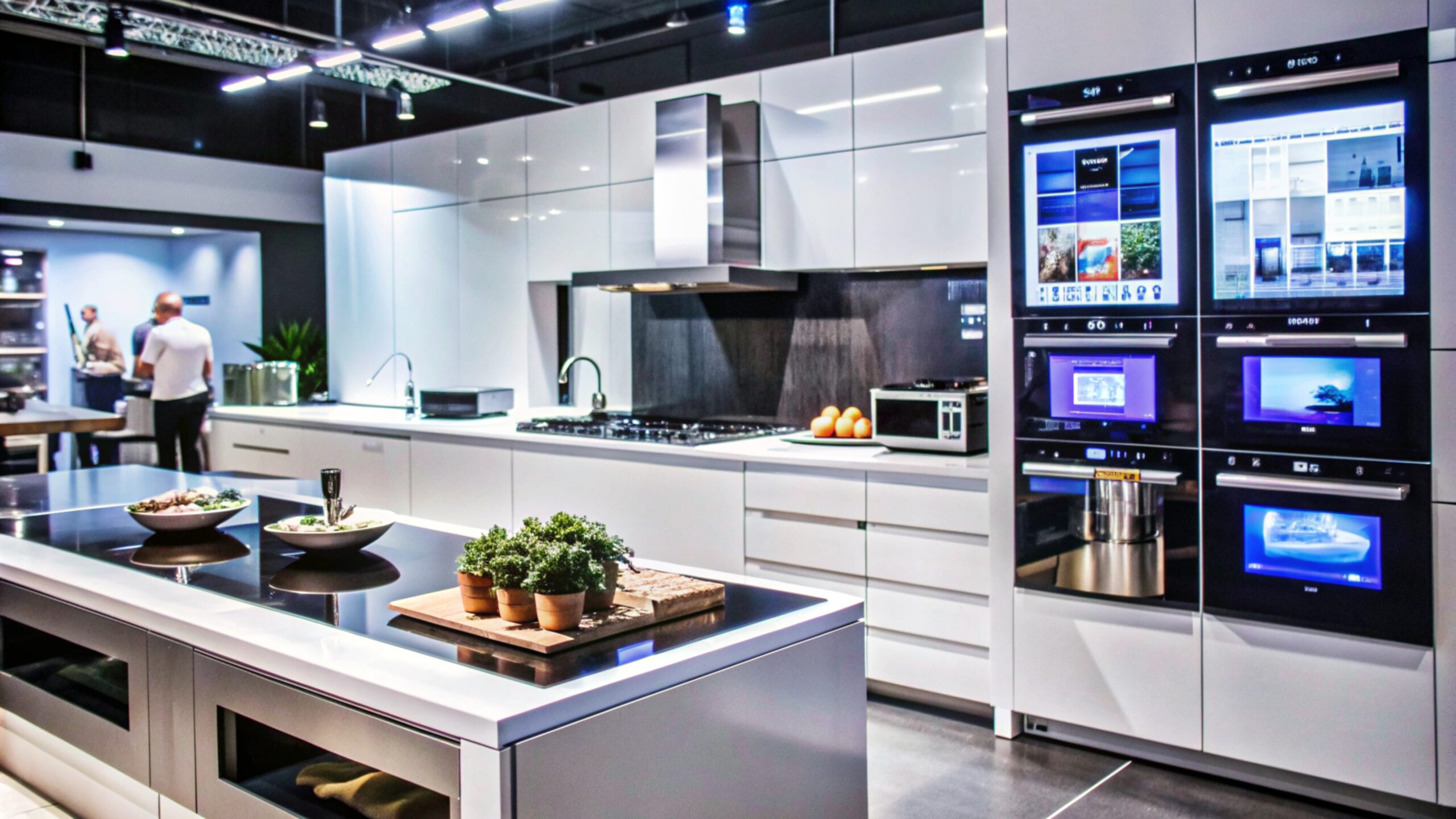
Technology has transformed every aspect of human life, and home appliances are no exception. The rise of smart home devices is reshaping how we cook, clean, and manage our daily routines. From intelligent refrigerators to voice-controlled ovens, these innovations bring convenience, efficiency, and energy savings. This article explores how smart home appliances are revolutionizing daily life and making homes more functional than ever before.
Convenience at Its Best
One of the biggest advantages of smart home appliances is the unparalleled convenience they offer. Devices equipped with Wi-Fi connectivity, voice assistants, and artificial intelligence (AI) allow homeowners to control them remotely via smartphones. Imagine preheating your oven on the way home from work or starting your washing machine while lying in bed. Such features save time and effort, allowing people to focus on more important activities.
Smart refrigerators, for instance, can track expiration dates and suggest recipes based on available ingredients. This not only reduces food waste but also makes meal planning simpler. Similarly, robotic vacuum cleaners autonomously clean floors, freeing up time for families to relax and unwind.
Energy Efficiency and Cost Savings
Energy consumption is a major concern for many households. Smart home appliances help address this issue by optimizing energy use and reducing wastage. Smart thermostats, for example, learn user preferences and adjust temperatures accordingly to minimize electricity bills. Likewise, energy-efficient washing machines and dishwashers automatically detect load sizes and adjust water consumption accordingly.
Some modern refrigerators even have energy-monitoring systems that alert users about excessive power consumption. By integrating with smart home hubs, these devices provide real-time data on energy usage, helping users make informed decisions and cut down on utility expenses.
Enhancing Kitchen & Cooking Experience
Cooking has become a lot more interactive and enjoyable with the advent of smart kitchen appliances. Smart ovens allow users to control temperature and cooking time through mobile apps. Some models even feature built-in cameras, enabling remote monitoring of food as it cooks. This prevents overcooking or burning and ensures perfect results every time.
Voice-activated assistants like Amazon Alexa and Google Assistant have also enhanced the kitchen & cooking experience. They provide hands-free assistance by setting timers, suggesting recipes, and even controlling appliances with voice commands. Smart coffee makers, air fryers, and pressure cookers further simplify meal preparation, making home-cooked meals more accessible and efficient.
Improved Home Security and Safety
Another significant benefit of smart home appliances is their contribution to safety and security. Smart smoke detectors and carbon monoxide sensors provide real-time alerts, allowing homeowners to take immediate action in case of emergencies. Likewise, smart locks and video doorbells enhance home security by allowing remote monitoring and control of entry points.
Smart home hubs can integrate various security features, enabling homeowners to manage everything from a single device. Whether it’s receiving notifications about an unlocked door or turning off an unattended oven remotely, these appliances help create a safer living environment.
Personalized User Experience
Artificial intelligence (AI) and machine learning (ML) have made smart appliances more intuitive than ever. Many devices now learn user preferences and habits over time, offering customized recommendations and automating daily tasks. For example, smart coffee machines remember preferred brew strengths, while smart lighting systems adjust brightness based on the time of day.
Smart washing machines, too, analyze past usage patterns and recommend optimal wash cycles. These intelligent features not only improve efficiency but also add a personal touch to everyday routines, making home management easier and more enjoyable.
Seamless Home Integration
The ability of smart home appliances to integrate with other devices and platforms has significantly improved the overall home experience. Smart home ecosystems such as Apple HomeKit, Google Home, and Amazon Alexa allow different appliances to communicate and work together. For instance, a smart thermostat can adjust the temperature when a smart lock detects that no one is home, leading to energy savings.
Similarly, integrating smart lighting with entertainment systems can create immersive home theater experiences. These interconnections make homes more responsive and adaptable, catering to individual needs and preferences seamlessly.
Sustainability and Environmental Benefits
Sustainability has become a key concern in modern households, and smart home appliances contribute to eco-friendly living. Many devices now come with energy-saving modes, while others promote sustainable practices. Smart water heaters, for example, heat water only when needed, reducing unnecessary energy usage.
Additionally, appliances like smart composters help reduce household waste by breaking down food scraps efficiently. By encouraging energy conservation and waste reduction, smart home technology is helping individuals adopt a greener lifestyle.
Conclusion
Smart home appliances have redefined modern living by enhancing convenience, efficiency, and security. From improving the kitchen & cooking experience to promoting energy savings and sustainability, these devices make daily tasks easier and more enjoyable. As technology continues to advance, the role of smart home appliances will only expand, offering even greater possibilities for effortless home management. Investing in smart home technology is not just a luxury—it’s a step toward a smarter, more sustainable future.